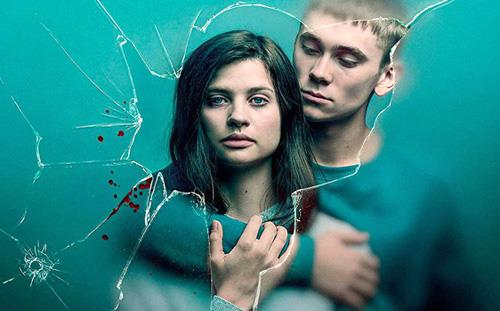
Nordic noir is an acquired taste, and Netflix doesn’t make it any easier for the discerning viewer by releasing shows in a steady stream, with little information and no warning.
Every so often, though, a Nordic noir series comes along that’s so compelling and emotionally wrenching, it almost takes the breath away.
Here are three that caught my eye in recent weeks.
One of them — the third and final one here — just might be the most unforgettable, heartbreaking television dramas I’ve ever seen in a long, long while — and, yes, I’m including HBO’sChernobyl in that. It features one of the single best performances, cumulatively speaking, I’ve seen in any drama, anywhere, on the big screen or small.
Undercover
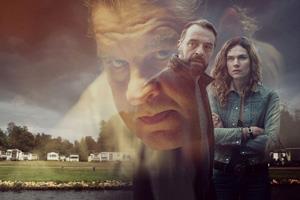 Technically not Nordic noir — Undercover is a Belgian-Dutch co-production — this slow-burning then suddenly fast-paced thriller has all the trappings of Scandinoir drama and shows how the genre has morphed from it’s Swedish-Danish roots to neighboring countries in Europe, to Finland, Iceland, Germany, Norway, and now Belgium and Holland.
Technically not Nordic noir — Undercover is a Belgian-Dutch co-production — this slow-burning then suddenly fast-paced thriller has all the trappings of Scandinoir drama and shows how the genre has morphed from it’s Swedish-Danish roots to neighboring countries in Europe, to Finland, Iceland, Germany, Norway, and now Belgium and Holland.
Undercover is a somewhat boring title for a really clever premise, that shows just how inspired Europe’s crime writers can be. Think of Tony Soprano from The Sopranos, give him an equally difficult family, move him to the city suburbs of a mid-sized city in Holland and make him the XTC ecstasy king of northern Europe.
So far, this sounds like any number of other pale imitations of US crime dramas — including The Sopranos— but like that David Chase drama, creators Piet Matthys, Nico Moolenaar and Bart Uytdenhouwen have given their tale a twist. Undercover opens with drug baron Ferry Bouman (Frank Lammers, above) taking his much-needed family getaway — not to the French Riviera but to a summer cottage, basically an upscale trailer park, in the countryside. Business is not to be discussed; the vacation is just that, a chance to relax, decompress, fire up the barbecue, and talk about the weather with family and friends.
 There’s just one catch. Belgian police have assigned undercover agents Peter Bogaert (Tom Waes, above) and Anouk Janssens (Anna Drijver, above) to pretend to be a married couple who rent the summer cabin next door, intending to befriend the crime boss, win his confidence, and get evidence on him.
There’s just one catch. Belgian police have assigned undercover agents Peter Bogaert (Tom Waes, above) and Anouk Janssens (Anna Drijver, above) to pretend to be a married couple who rent the summer cabin next door, intending to befriend the crime boss, win his confidence, and get evidence on him.
Just another quiet summer getaway, in other words.
And in the grand tradition of compelling crime fiction everywhere, everything that can go wrong does. Ferry’s wife Danielle (Elise Schaap) is needy and clueless, but at heart, a decent person; Ferry has kept her deliberately in the dark about what he does for a living, and yet it’s clear they love each other.
Meanwhile Peter and Anouk have their own issues: He’s happily married, but his wife is increasingly stressed by his long, unexplained absences, and Anouk, juggling her fake — at first — friendship with Danielle on the one hand and fretting over her own unhappy single life on the other, is headed for a crisis of her own.
Like Tony Soprano, Ferry Bouman is ruthless but oddly endearing, a tirelessly loyal family man capable of moments of shocking violence, but who follows a moral code.
When things go wrong, they go very wrong, indeed. Can’t a man, even a notorious drug dealer, have a quiet family get-together in a country cottage without everyone having a nervous breakdown? You know things are getting bad when there isn’t a single male member of the family who can barbecue a steak without charring it blacker than the remains of a meth lab explosion.
Undercover proved a hit for Netflix in Europe. A second season is in production.
Trapped
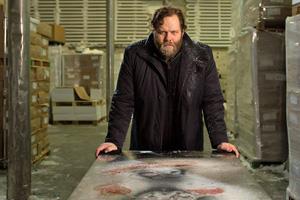 Netflix recently uploaded new episodes of this compelling Icelandic crime drama that, once again, belies its somewhat ordinary, prosaic title.
Netflix recently uploaded new episodes of this compelling Icelandic crime drama that, once again, belies its somewhat ordinary, prosaic title.
The original, first season of Trapped revolved around a ferry trapped by a howling blizzard in the harbor of a small, coastal town in the north of Iceland. The town’s residents have little choice but to take the crew and passengers into their care until the weather clears. The small-town cop in charge — and towns don’t get much smaller than a town precariously situated on the north coast of Iceland in midwinter — quickly finds himself in over his head, as the ferry’s crew appear to be involved in all manner of illicit, illegal activities on the ship, none of which have anything to do with ferrying passengers from one seaside town to another.
The new episodes pick up a year later with a new mystery. (The first season’s core mystery was neatly resolved in the final episode, with no loose ends.)
Small-town police chief Andri Olafsson (Ólafur Darri Ólafsson, above) has been promoted to a police detective job in Reykjavik, Iceland’s closest equivalent to a big city. A murder attempt on a prominent lawyer with political connections is traced back to Olafsson’s hometown, and he finds himself returning home to track down missing leads, and reconnecting with his ex-wife and estranged teenage daughter.
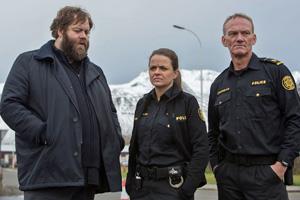 Like many recent Nordic noir dramas — Deadwind, for example — the mystery involves a dodgy development project that is looking for deep-pocketed investors — basically, Americans with money.
Like many recent Nordic noir dramas — Deadwind, for example — the mystery involves a dodgy development project that is looking for deep-pocketed investors — basically, Americans with money.
What’s remarkable about Trapped, created by Everest director Baltasar Kormákur, who also directed many of the episodes, is how it touches on many of the big issues of the day — climate change, inequality, the migrant crisis, political machinations, the financial markets, corruption in high places, etc. — but manages to tell a compelling story besides.
Iceland is a tiny country, with a land mass smaller than the state of Colorado, and yet it has managed to produce a TV thriller as compelling as anything on one of the major US cable networks.
It must have done some good: Netflix has already ordered a third season.
Quicksand
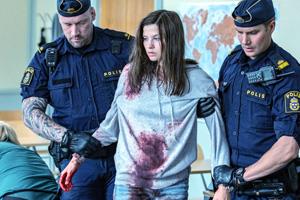 And now for the must-see.
And now for the must-see.
Timely, terrifying, urgent, heartbreaking, compassionate, deeply disturbing and featuring one of the most unforgettable performances I can recall seeing in a long, long time, this Swedish psychodrama about a 17-year-old girl caught in the middle of a high-school shooting is, quite literally, unforgettable.
And harrowing. Hardly a day goes by that I don’t still find myself thinking about it.
Quicksand — again with the prosaic one-word titles that, by themselves, aren’t going to convince anyone to watch — is told in flashback.
The first (of six) episodes finds high-school senior Maja Norberg (Hanna Ardéhn, top, a relatively unknown Stockholm actor who’s 23 but plays a naive 17-year-old as convincingly as if she was 15), covered in blood, shaken and silent, being checked into a police station and then into jail, in slow, almost excruciating detail, in what seems like real time. There has been a horrific shooting at the local high school, we learn, and Maja is somehow involved. The people around her — police, paramedics, doctors, forensic crime scene investigators — are not treating her roughly, but it’s obvious from their brusque, by-the-book manner that they believe her to be culpable.
Over the next five hours, we learn — slowly, with details revealed one by one — exactly what happened, how, and why.
The story jumps back and forth in time, through flashbacks and flash-forwards, but I can’t stress this enough: What is an awful cliché in TV storytelling right now, in all too many US cable and network dramas, works seamlessly here. Never annoying, never irritating, never showing off, the story’s threads come together in a tight, carefully thought-out manner. Despite the flashbacks and flash-forwards, by the time Quicksand ends — and it has a definite, definitive ending, no cliffhanger here — the viewer is left in no doubt as to the story’s beginning, middle and end.
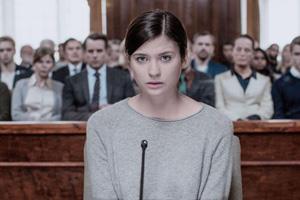 I didn’t want to watch a drama about a school shooting. Who does? I found myself watching half of the first episode, and then walking away. I didn’t want to see more.
I didn’t want to watch a drama about a school shooting. Who does? I found myself watching half of the first episode, and then walking away. I didn’t want to see more.
There was something about it, though — a certain edge, an undeniable realism, and early signs of an understated and yet shattering performance by Ardéhn— that made me come back.
I let several days go by first — thank you, Netflix, for making TV in such a way that the viewer has that option — but when I did come back, I ended up burning through the remaining five episodes in a binge-watch.
I’m glad I did. This isn’t some cheap, gimmicky mystery thriller that has a rushed, ill-thought-out ending tacked on like some obligatory endpoint. No spoilers here, but the ending left me with a tear in my eye.
Quicksand was adapted by PontusEdgren and Martina Håkansson — I know, I haven’t heard of them either — from the novel by Swedish lawyer Malin Persson Giolito, who has worked at various points for the European Court of Justice in Luxembourg and the European Commission in Brussels.
It is, quite simply, one of the most stunning dramas you will see this year.
Give it a chance, at the very least. It makes for hard viewing, but it’s worth it in the end.